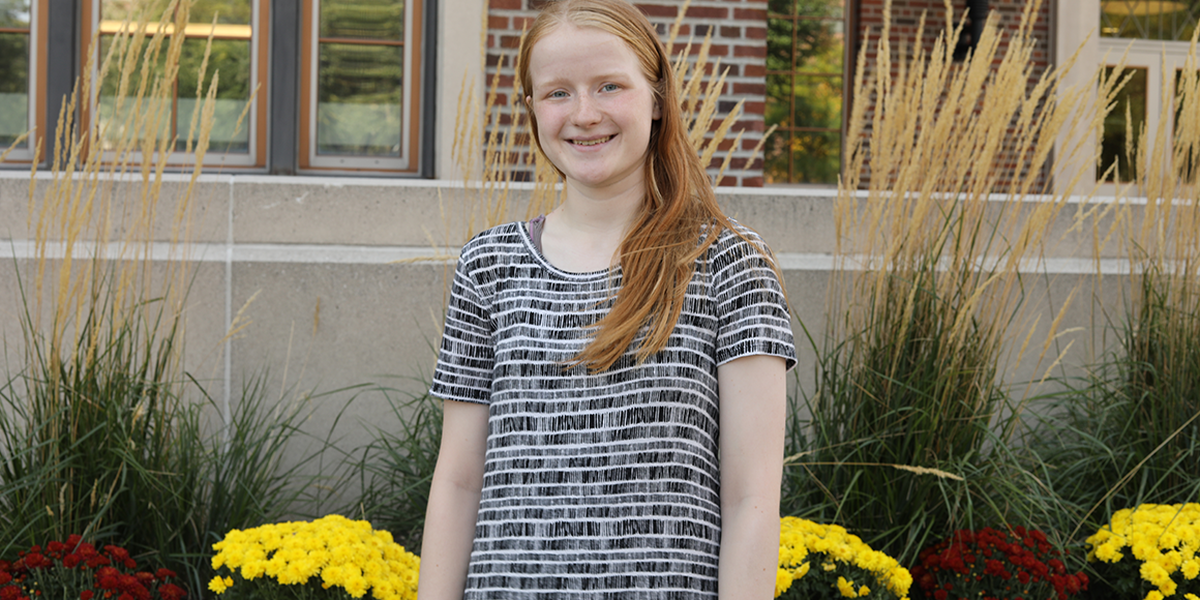
After getting involved with the organization only a year ago, Mikayla Whitehouse has become passionate about the cause and knows the importance of progressing treatments forward to help improve people’s lives and ultimately save the life of a loved one. As a sophomore genetics, cell biology and development student pursuing a career in the health sciences, she is inspired by how the organization utilizes genetics to match donors to patients. Read our Q+A with her and learn more>
How did you get involved with Be the Match?
I became involved with Be The Match in fall 2022 in my freshman year. I am also a member of the University of Minnesota Marching Band and during our band camp in August, a student representative who works with Be the Match gave a presentation to the marching band about the organization. The student representative talked about how we as young people have the opportunity to help save a life with a simple cheek swab and possibly a decision to say yes to donating our stem cells in a noninvasive, paid-for procedure. As a biology student pursuing a career in the health sciences to help people with my knowledge, this really inspired me. After the presentation, I swabbed to join the registry and asked the student representative how I could get more involved. I volunteered at the October Ski-U-Mah Against Cancer drive for the first time a few weeks later.
Is there a personal connection to the cause?
Thankfully, no one in my family has had leukemia or blood cancer, but my grandfather was diagnosed with a different type of early-stage cancer about four years ago. After difficult chemotherapy, he became cancer-free, and I am forever thankful to the doctors and other medical staff who saved his life. More broadly, cancer is a disease that has taken so many lives early and is difficult to study and treat, so I know that working towards more treatments for all cancers, including blood cancers, will help improve people's lives. By being involved with Be The Match, I may be helping to save the life of someone else's grandfather or other loved one.
What motivated you to take on a leadership role?
When I was introduced to the opportunity to join the Be The Match On Campus leadership team in late fall 2022 after volunteering, I was at first surprised that I was asked to fill such a position, since I was only a freshman who had not worked with Be The Match for very long – I did not yet know very much about the organization's ins and outs. Be the Match associates informed me that the team needed new members after losing many members during the pandemic, so I was motivated to help fill that need, especially because I knew that the cause was so important.
How does your work with Be the Match intersect with your academic interests or professional aspirations?
My work with Be The Match closely aligns with my academic interests. I am majoring in genetics, cell biology and development, and I am interested in learning more about various areas of molecular biology, including inherited genetic diseases, gene editing, transcriptional and translational gene regulation, stem cells, cell communication through membrane proteins, and others. Be The Match uses these areas of knowledge to genetically match donors to patients. Working with Be The Match inspires me professionally because this organization's work illustrates how molecular biology can be applied in real-world contexts to help people.
Why should other students get involved?
Other students should get involved because Be The Match offers volunteer opportunities in accessible locations on campus; good networking opportunities with professionals in the fields of biology, public health, or communications; and the opportunity to make a positive difference in the world simply with one's time and talents.